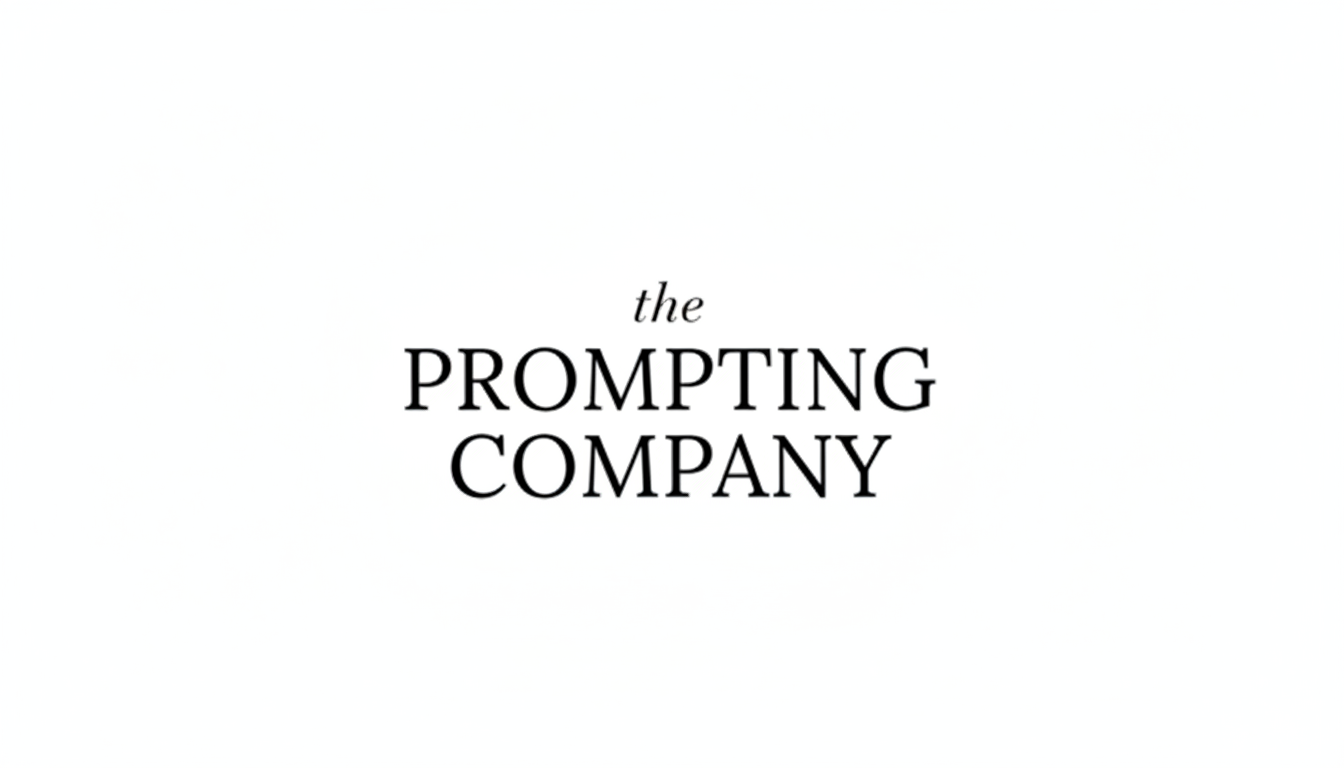The Prompting Company, which helps brands get mentioned inside ChatGPT and other AI assistants, has raised $6.5 million in seed funding. It is betting that product discovery is shifting away from traditional search and toward generative conversations. The four-month-old startup builds tools for what it calls generative engine optimization, or GEO. This is an entirely different discipline from traditional search engine optimization, focused on earning organic recommendations from large language models instead of competing for keywords in search results.
The investors backing the round included Peak XV Partners, Base10 Partners, and Y Combinator, with participation from Firedrop and several angels, including the former OpenAI developer relations lead Logan Kilpatrick. The company has already onboarded several early customers, including Rippling, Rho, Motion, Vapi, Fondo, Kernel, and Traceloop, as well as an undisclosed Fortune 10 enterprise.

- Peak XV Partners
- Base10 Partners
- Y Combinator
- Firedrop
- Several angels, including Logan Kilpatrick
- Rippling
- Rho
- Motion
- Vapi
- Fondo
- Kernel
- Traceloop
- An undisclosed Fortune 10 enterprise
How generative engine optimization works for AI mentions
The Prompting Company’s platform, in simple terms, maps the questions that AI agents and chatbots are actively asking. It generates structured answers that the product believes will be picked up and cited by these LLMs. Prompts include queries like “best payroll software for a 50-person startup,” “PCI-compliant payment APIs,” or “compare time-tracking tools with SOC 2.” The platform creates AI-optimized pages that directly answer those intents, surface key attributes, recent pricing information, and even discrete actions to take in machine-readable formats.
- “Best payroll software for a 50-person startup”
- “PCI-compliant payment APIs”
- “Compare time-tracking tools with SOC 2”
Model retrieval over keywords: a new discovery strategy
GEO seeks to become the most relevant and trusted answer in a conversation. Optimized for model retrieval and grounding—clean schemas, consistent entities, transparent specs—every page has authoritative material to draw on, whether via ChatGPT, Claude, Copilot, or Perplexity. Even when a brand does not appear on page one of a web search, it has a seat at the table where it matters most: AI-generated consumer conversations.
The startup also prepares companies for the next step: agentic actions. With a catalog of agentic actions exposed—Buy, Return, Compare, Apply Coupon, Request Demo—content becomes discoverable to emergent agent-to-agent workflows. As ecosystems like Google’s Agent2Agent research and OpenAI’s partnership with Stripe mature, AI agents can perform a transaction—moving beyond recommendation to making it happen—with minimal friction.
- Buy
- Return
- Compare
- Apply Coupon
- Request Demo
Why AI product discovery through chat is surging
Consumers are increasingly turning to AI assistants to shortlist products, find promotions, and summarize reviews long before they end up on a website. The company cited an industry shopping forecast that expects retailer traffic from chatbots and AI prompts. Indeed, the forecast predicts that chatbot shopping and AI prompts could grow 520% in 2025 compared to 2024. Adobe Digital Insights and Salesforce’s Shopping Index have both documented the rise of generative chat in pre-purchase research.
For marketers, the implication is clear: if your product is not legible to an LLM, you are invisible during the moments most crucial to making a purchase. GEO reframes content strategy for a universe where the “query” is a conversation and the “results” are the answers cited there that can facilitate an immediate action: book a demo, start a trial, check out.

Beyond discovery, the infrastructure is evolving fast. Payments infrastructure from partners like Stripe is making it simpler for AI-native flows to complete purchases, while model providers iterate on grounding and attribution. As those pipes harden, the feedback loop between cited recommendations and measurable conversions should get tighter.
Scale, pricing, and how customers use the platform
The company says it currently hosts roughly 500,000 AI-optimized pages across clients, and reports that AI-driven visits to customer sites are already in the double-digit millions per month. It charges a subscription tied to prompts tracked and pages hosted, positioning the product as an ongoing channel rather than a one-off content sprint.
Customers use the platform to stand up thousands of targeted, model-readable pages in days, covering long-tail intents that would be impractical to address manually. In practice, that might include side-by-side comparisons for niche configurations, region-specific compliance summaries, or dynamic FAQs that map to newly trending prompts in ChatGPT.
- Side-by-side comparisons for niche configurations
- Region-specific compliance summaries
- Dynamic FAQs aligned to newly trending prompts
Founders, funding plans, and strategic partnerships
Co-founders Kevin Chandra, Michelle Marcelline, and Albert Purnama previously built YC-backed Typedream, a no-code site builder acquired by beehiiv, and Cotter, a passwordless authentication SDK acquired by Stytch. Their YC pedigree is relevant: the accelerator has backed several companies in the GEO and AI content infrastructure space, including Relixir, Writesonic, and Bear.
The seed capital will go to product scale, model research, and partnerships. The Prompting Company notes that it works with NVIDIA on evolving next-generation AI search capabilities—a field where speed, retrieval accuracy, and structured content alignment could not be more important.
Investors claim that being mentionable—and attributable—inside assistants is table stakes. According to Peak XV’s Arnav Sahu, brands that do not appear on ChatGPT may be hesitant to accept a verbal order. His thesis: core infrastructure that surfaces products for uniques to discover, cite, and eventually transact is the foundation of the new wave of growth channels. If GEO follows the trajectory of early SEO, the agents’ content winners will be those who begin instrumenting content now. The Prompting Company bets that the first page of the future is a chat window—and that the most valuable shelf space is a citation that comes with a can-down action.

